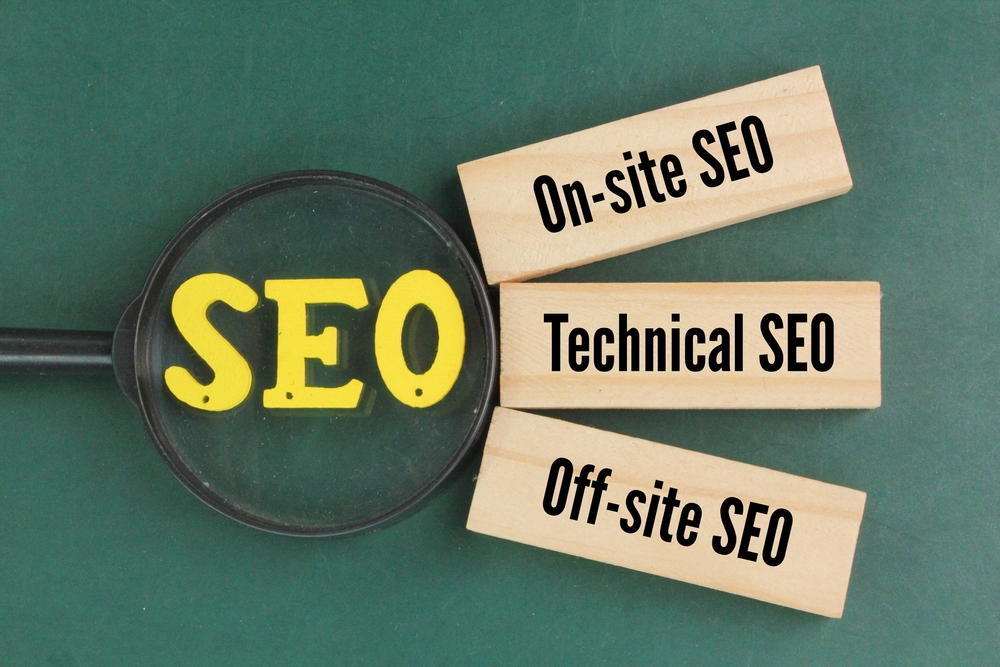What Is SEO Marketing?
In today’s digital landscape, businesses and brands must establish an online presence to remain competitive. One of the most effective ways to achieve this is through SEO marketing. But what exactly is SEO marketing, and how can it benefit your business? In this article, we’ll break down the different intricacies of SEO marketing, and show you how it can drive your brand’s online success.
Understanding SEO Marketing
SEO, or Search Engine Optimization, is the process of optimizing your website and its content to rank higher in search engine results pages (SERPs). SEO marketing, therefore, involves using SEO strategies to enhance your website’s visibility, attract more organic traffic, and ultimately, increase conversions. It’s about making your website more appealing to search engines like Google, Bing, and Yahoo, so they prioritize your content over others when users search for relevant keywords.
Why Is SEO Marketing Important?
It’s vital because a lot of people use search engines like Google. In fact, Google gets billions of users every day. According to DemandSage, Google caters to 8.5 billion searches a day.
SEO marketing is crucial because it directly impacts your website’s visibility in search engines. When your website ranks higher in search results, it’s more likely to be seen by potential customers. This increased visibility can lead to more traffic, higher engagement rates, and ultimately, more sales. In an era where consumers turn to search engines to find products, services, and information, a strong SEO strategy can be the difference between success and obscurity.
Be sure to check out Richard Hale’s SEO Guide for the full rundown on mastering SEO.
Key Components of SEO Marketing
SEO marketing is not a one-size-fits-all approach. It involves several key components, each of which plays a vital role in your overall strategy. Let’s explore these components:
1. On-Page SEO
On-page SEO refers to the optimization of the content, using keywords, and the structure of your website. The most important elements include:
- Keyword Research: Identifying and using relevant keywords that your target audience is searching for.
- Content Optimization: Creating high-quality, engaging content that answers users’ questions and meets their needs.
- Website Structure: This refers to how your SEO is built out on a page by page level.
- Meta Tags: Crafting effective meta titles and descriptions that accurately describe the content of your pages.
- Internal Linking: Linking to other relevant pages on your website to keep users engaged and reduce bounce rates.
2. Off-Page SEO
Off-page SEO involves actions taken outside your website to improve its authority and ranking. This primarily includes:
- Link Building: Acquiring links from other reputable websites to your own, signaling to search engines that your content is valuable.
- NAP and Citations: NAP (Name, Address, Phone) and citations are important for local SEO.
- Social Media Marketing: Leveraging social platforms to promote your content and engage with your audience.
- Influencer Outreach: Collaborating with influencers to reach a broader audience and build brand credibility.
3. Technical SEO
Technical SEO focuses on improving the backend structure of your website. This includes:
- Site Speed Optimization: Ensuring your website loads quickly, which is crucial for both user experience and search engine ranking.
- Mobile-Friendliness: Making sure your site is accessible and user-friendly on mobile devices.
- Sitemap and Robots.txt: Creating and maintaining a sitemap and robots.txt file to guide search engines as they crawl your site.
How to Develop an Effective SEO Marketing Strategy
Developing a successful SEO marketing strategy involves a combination of the above components, tailored to your specific business needs. Here are some steps to help you get started:
1. Conduct an SEO Audit And Analysis
Our SEO agency has always required clients to get a full SEO audit and analysis. This is the only way to check everything out, see what’s right, and see what’s wrong. If your car wasn’t working right, you’re not going to guess what it could be. Rather, you’d hook it up to see what’s wrong. The same is true about SEO.
Before you can improve your SEO, you need to know where you currently stand. An SEO audit will help you identify areas of improvement on your website, including technical issues, content gaps, and keyword opportunities.
2. Set Clear SEO Milestones And Goals
Determine what you want to achieve with your SEO marketing efforts. Whether it’s increasing organic traffic, improving conversion rates, or boosting your search engine rankings, having clear goals will guide your strategy and help you measure success. You could start with a goal of 100 organic users a month, then aim for a new milestone of 250 organic users a month. You could also use ranking keywords as a goal, trying to achieve 100 organic ranking keywords.
3. Focus on Content Quality
High-quality content is the cornerstone of SEO marketing. Focus on creating content that is informative, engaging, and valuable to your audience. This will not only help you rank higher in search results but also build trust with your visitors. Your content will compound as you publish more content and that’s great for your website as it helps you build topical authority for your site.
4. Optimize for Mobile
A large percentage of the world has smartphones, which means they have a phone on them many hours a day. With more users accessing the internet via mobile devices, ensuring your website is mobile-friendly is essential. A responsive design, fast loading times, and easy navigation are key factors in mobile optimization.
5. Build High-Quality Backlinks
Backlinks are a major factor in SEO ranking. Focus on acquiring backlinks from reputable sites within your industry. This can be done through guest blogging, influencer outreach, and creating shareable content.
Measuring the Success of Your SEO Marketing Efforts
Once your SEO strategy is in place, it’s important to track your progress and measure your success. Here are some key metrics to monitor:
- Google Analytics: Google Analytics can help you track organic traffic on your website.
- Google Search Console: Google Search Console can help you track your technical SEO.
- Organic Traffic: The number of visitors coming to your site through search engines.
- Keyword Rankings: How well your targeted keywords are ranking in search engine results.
- Bounce Rate: The percentage of visitors who leave your site after viewing only one page.
- Conversion Rate: The percentage of visitors who complete a desired action, such as making a purchase or filling out a contact form.
Conclusion
SEO marketing is a powerful tool that can significantly impact your online presence and business success. By understanding its key components and implementing a well-rounded strategy, you can improve your search engine rankings, drive more organic traffic, and achieve your business goals. Remember, SEO is a long-term investment, but with patience and persistence, the results can be incredibly rewarding.



